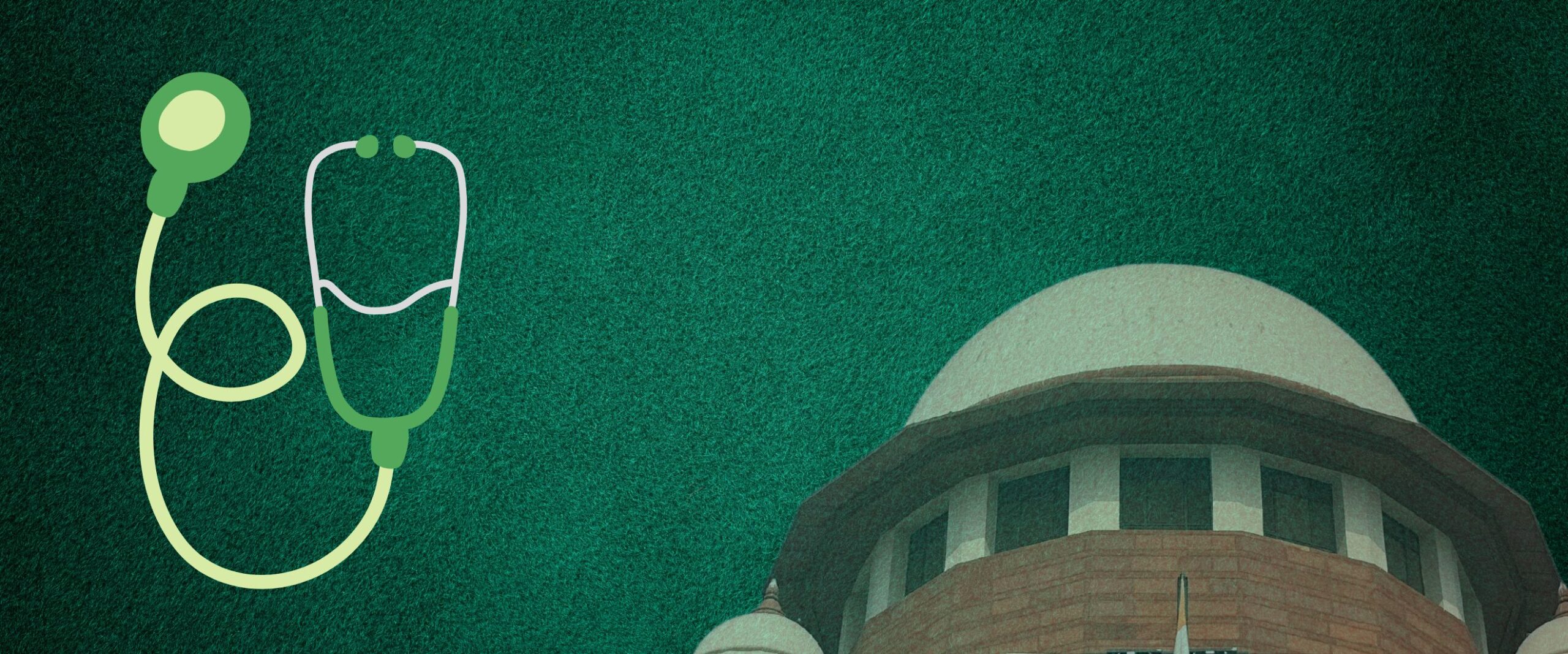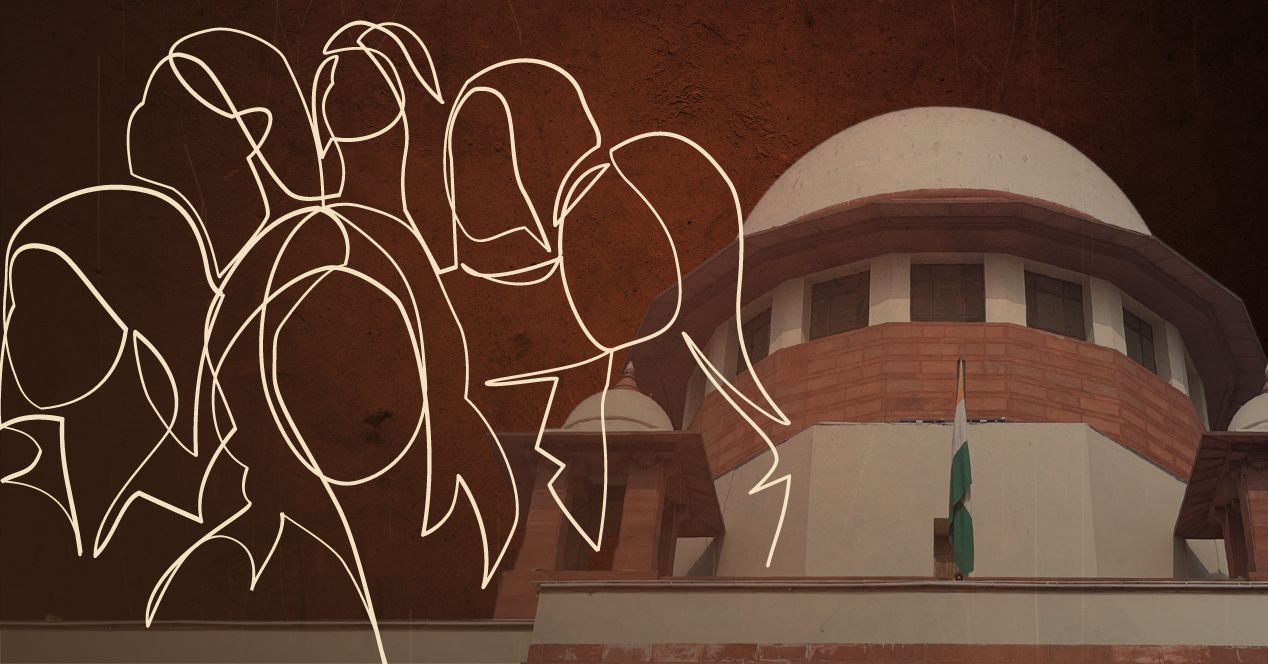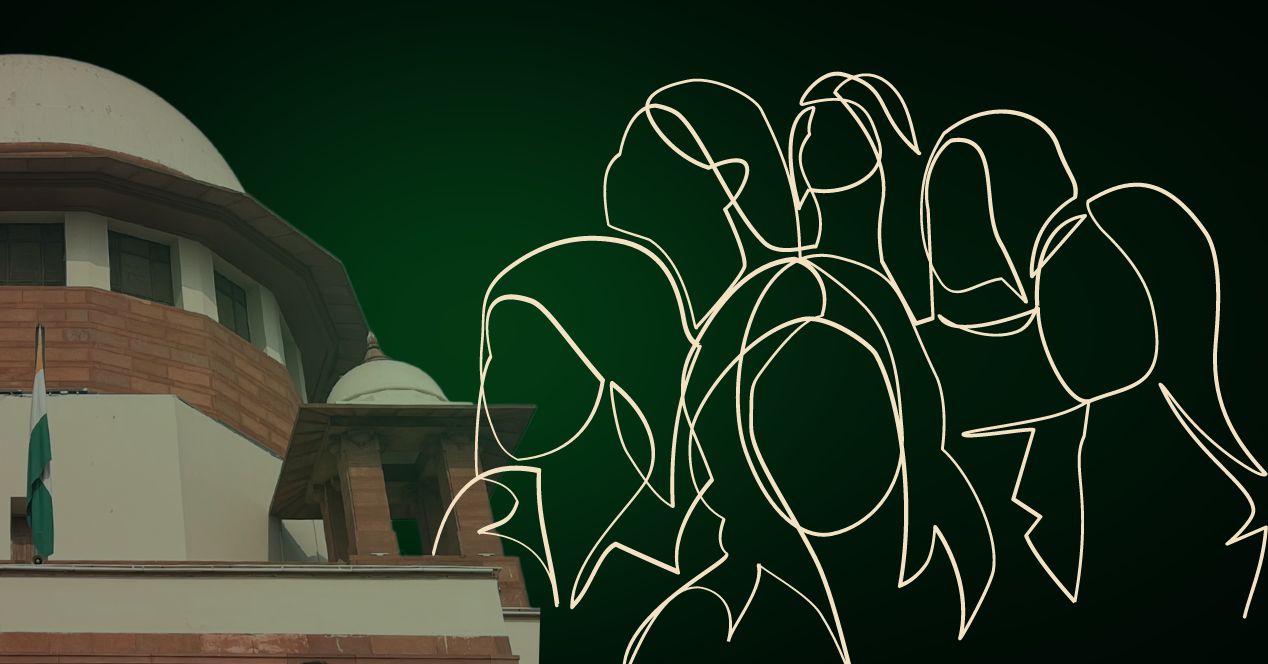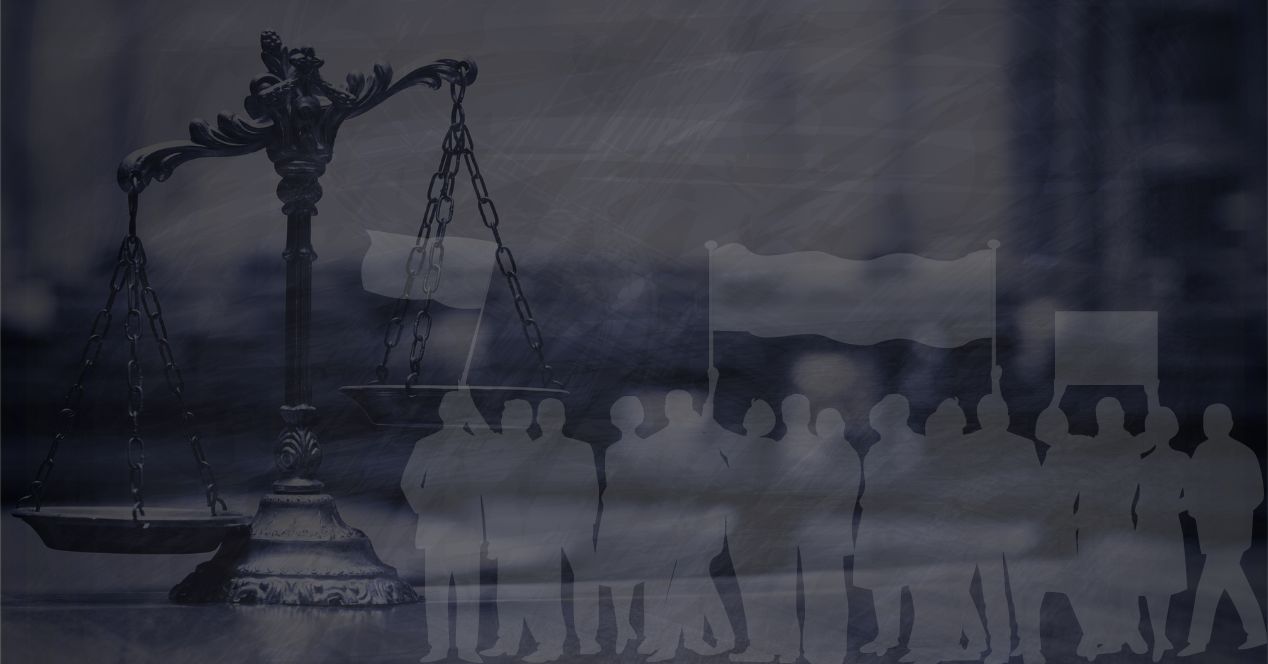Analysis
Kolkata rape and murder case | Women doctors want equal opportunities, not concessions, says Supreme Court
Junior doctors informed the bench that they would return to work if “confidence-building” measures are undertaken by the state government

In Re: Alleged rape and murder incident of a trainee doctor in R.G. Kar Medical College and Hospital, Kolkata and related issues | Day 4
Today, a three-judge bench of Chief Justice D.Y. Chandrachud and Justices J.B. Pardiwala and Manoj Misra reviewed an updated status report from the Central Bureau of Investigation (CBI) about the rape and murder of a woman trainee doctor at the R.G. Kar Medical College and Hospital, Kolkata on 9 August 2024. This is the top court’s third review of the CBI’s investigation report and the fourth hearing in the matter since it took suo moto cognisance of the case last month. The bench had also requested protesting doctors to return to work and assured them that no adverse action would be taken against them for protesting.
Last week, on 9 September, the Court had flagged a missing challan—specifically a document which is filled by a constable and sent to a doctor carrying out the post-mortem autopsy. The challan contains details of the victim, their clothing, and accompanying relatives. The West Bengal government was directed to provide some clarity on the missing document.
The key parties in the case before the top court are the West Bengal government, represented by Senior Advocate Kapil Sibal and Advocate Menaka Guruswamy, and the CBI represented by Solicitor General Tushar Mehta. Other stakeholders in the case are the parents of the deceased doctor represented by Senior Advocate Vrinda Grover. Doctors Associations appearing as intervening parties are represented by several counsel including Senior Advocates Indira Jaising and Karuna Nundy.
The Chief began today’s hearing by cautioning that there must be an “order in proceedings.” However, the sensitive nature of the case coupled with ongoing protests and a state police-CBI dispute, has resulted in chaotic proceedings at the top court from Day 1. Numerous counsel representing various stakeholders keep seeking the bench’s attention. Today was no different.
Since the incident, a lot has unfolded outside Court. The CBI has arrested the accused Sanjay Roy on 10 August and R.G. Kar College’s ex principal Sandip Ghosh on 14 September. The West Bengal government has undertaken several “settlement” attempts with the doctors to ensure they return to work. While the senior doctors have resumed work, junior doctors continue to be on strike. Law and order in the state continues to be a cause of concern and the city remains barricaded.
Today, the bench remarked that the latest status report by the CBI was “deeply disturbing.” They decided not to disclose the details to the public yet, so as to not compromise the integrity of the investigation. The bench also received an update about security measures undertaken by the West Bengal government in public hospitals to enhance the safety and working conditions of doctors since the incident.
Concerns about live streaming
At the outset, Sibal for West Bengal informed the bench that women lawyers in his chambers were receiving threats of rape and acid attacks. He blamed the hostility towards himself and the Court due to the live streaming of the hearings. He stated that a lot of misinformation was being spread and circulated because of the livestream. “We have a reputation of 50 years that is broken overnight,” he exclaimed.
The Chief was sympathetic but stated that the live streaming of the proceedings would continue as the proceedings involved a matter of public interest.
Video footage discrepancies
The CBI informed the bench that the state had handed over only 27 minutes of footage for them to investigate. Sibal opposed this, claiming that close to eight hours of footage was submitted to the CBI in four different hard drives.
The bench stated that there were two things in question here: (i) video of the search and seizure of the police personnel and (ii) video of the CCTV cameras. The Chief questioned whether CCTV footage was submitted to the CBI. Sibal responded in the affirmative. He added that the CBI had signed the document saying that it was handed over to them in a sealed cover.
Mehta reiterated that the drives had only 27 minutes of footage. The bench stated that the CBI must get access to the full footage and also check to see if any blocking device was used in it.
A letter by the father of the deceased doctor
In a confidential letter to the CBI, the father of the deceased doctor had flagged several concerns the family had about the ongoing investigation. Today, Grover handed that letter to the bench. The bench, after reading the letter, stated that several of the concerns were already being dealt with by the CBI. However, they directed the CBI to follow up and communicate with the family regarding their concerns. Upon Grover’s request, the bench also directed the CBI to keep the parents informed about the developments in the investigation and communication with them be consistent and frequent. “This is the least we can do,” Mehta said, agreeing with the bench’s directions.
Wikipedia’s push against censorship falls short
On the first day of hearing the bench had directed the immediate removal of the name and pictures of the deceased trainee doctor from the public domain.
Today, Mehta informed the bench that the name of the deceased and a graphic painting of her image was still displayed on Wikipedia. Another counsel pointed out that while the real photograph of the victim was taken down, there were two footnotes which linked to an external article which had her picture. Guruswamy informed the Court that Wikipedia had been contacted but refused to take down the name saying “we refused to be censored.”
Mehta added that removing the details of the deceased was not censorship but rather prevented them from committing an offence.
In its order, the bench directed Wikipedia to remove the name of the victim immediately. The bench held that it was the governing principle of law that the identity of the victim be removed from the public domain in cases of rape and murder to maintain the privacy and dignity of the victim.
Budget allocations for more security for doctors and nothing more?
During the hearings, Nundy representing an association of senior doctors submitted that the West Bengal government had done nothing more than a budgetary allocation, though the Court had directed the state government to take up security measures to enhance safety and working conditions of doctors.
On being questioned by the bench regarding Nundy’s concerns, Sibal responded that several initiatives were already underway and would be completed in the next two weeks.
Sibal informed that three companies of CISF forces were deployed for additional safety in the R.G. Kar Medical College and Hospital. 82 new toilets were underway and 415 new CCTV cameras were being installed. When the bench pointed out that the progress had been very slow, Sibal responded that it took some time but assured the bench that all projects would be completed in the next seven to fourteen days.
The state government, Sibal said, had sanctioned 563 additional duty rooms for male doctors and 724 additional duty rooms for female doctors across hospitals. Further, the government was training women police personnel for the protection of women doctors. 910 of them were undergoing training and would be deployed soon.
Sibal also informed the Court that a new initiative named Rattirer Saathi (companion of the night) was launched by the Health Department of West Bengal to enhance security for doctors on night shifts.
The bench also pointed out that in the state of West Bengal there were a total of 37 government hospitals, nine of which were in Kolkata. Out of these, 17 had medical colleges attached to them. This meant that young girls just out of 12th grade were studying there for a future in the medical profession. Sibal stated that the safety of all doctors was of the utmost importance to the state.
The Rattirer Saathi controversy
Nundy pointed out that for the Rattirer Saathi initiative, the state government planned to deploy personnel recruited by private security companies. This was problematic because it raises concerns about the identity and efficiency of these personnel. Jaising added that the personnel must be replaced by members of the state police force.
The bench agreed that it was natural for women doctors to be wary of private personnel and volunteers to be in charge of their safety, especially considering the fact that the prime accused in the 9 August incident was a civic volunteer. They questioned how the state would ensure that they were trustworthy.
Sibal responded that extra care was being taken by the government to ensure that all the personnel were property identified. He clarified that there were no volunteers in this group and that the companies also undertook background checks. He stated that the initiative was a temporary measure undertaken to provide additional security.
Women doctors want equal opportunity not concession
A counsel appearing for the “Doctors for Patients,” drew the bench’s attention to two clauses in a Notification passed by the West Bengal Government on 19 August 2024 to increase the safety and security of doctors in the state.
The first clause, she said, stated that women doctors should not work more than 12 hour shifts and the second clause said women doctors cannot work night shifts. The bench stated that this was very problematic.
“Women need equal opportunities, not concessions,” the Chief said, pointing out that they could not be denied the right to work night shifts or shifts longer than 12 hours.
Sibal responded that the clauses were not mandatory, they were merely temporary measures undertaken by the state as adequate security personnel was not available. The bench stated that the onus was on the state to provide security. Sibal assured that the two clauses will be removed from the notification.
“Settlements” and “trust-building” endeavours with junior doctors
Today, Jaising representing the junior doctors front and Sibal appraised the Court about a “settlement” between the state government and the junior doctors who continue to remain on strike.
Sibal informed that in the fifth meeting, which was held yesterday evening, the Chief Minister assured that the doctors who return to work will not be reprimanded.
Jaising pointed out that the junior doctors had several requests:
- The formation of a board in each hospital comprising the doctors, nurses and other staff for increased security measures,
- The formation of an internal grievance committee to address issues faced by doctors
- The formation of an internal counselling committee to help doctors deal with the stress of the job
She informed that the doctors had no reservations returning to work if these “trust-building” endeavours were met.
She added that the discussions from yesterday’s meeting with the Chief Minister would be placed before the general body and action would be taken soon. When Sibal asked what the timeframe for this would be, she replied that she could not give a date.
The bench also directed that the state coordinate with a committee comprising the district magistrate, the superintendents and representatives of the junior and senior doctors for the formulation and implementation of safety measures of doctors.
The challan
Towards the end, Sibal responded to the bench’s question from the last hearing about the post-mortem challan. He informed the bench that the document had not been in circulation since 1997. However a requisition containing all the information mentioned in the challan had been filed by the state. The bench was not ready to accept the explanation as the challan was legally present in the statutory books.
The bench will hear the case in a week.




